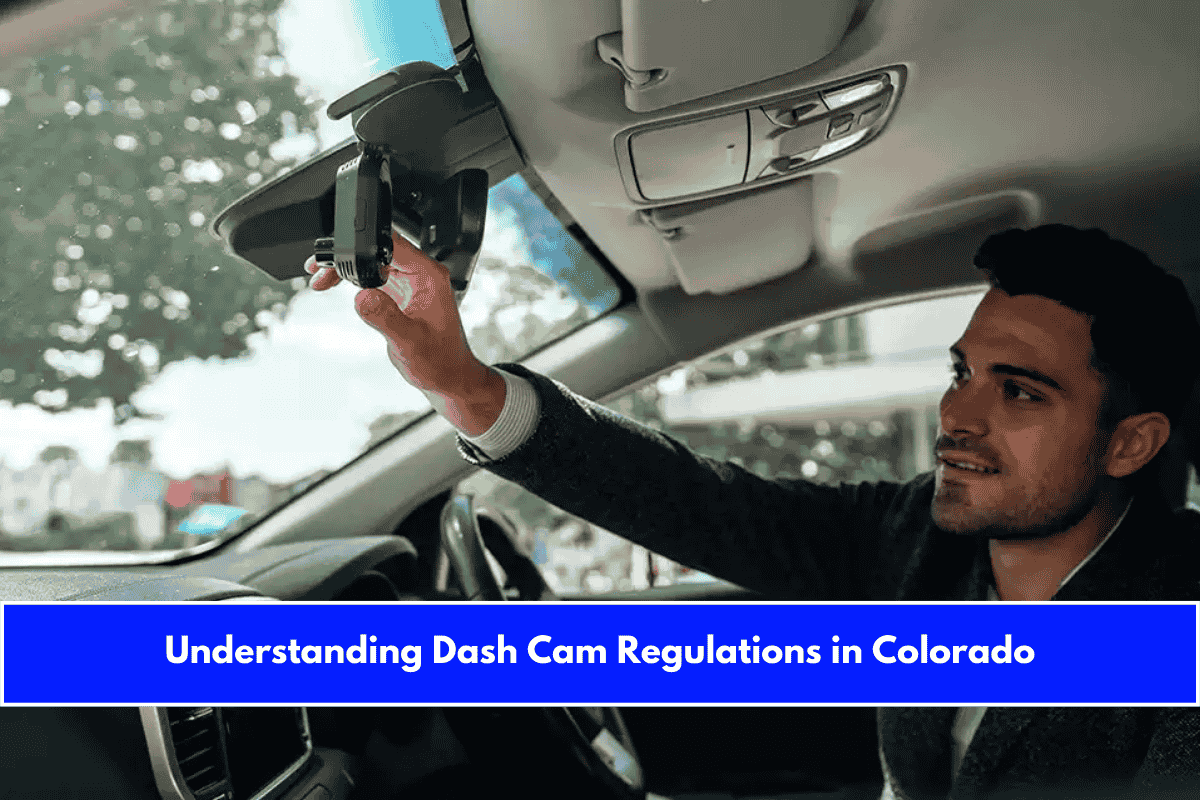Dash cams are legal in Colorado. There is no state law that prohibits the use of dash cams in private vehicles. Many drivers install them to capture footage for insurance claims, accident evidence, or personal safety.
Placement and Visibility Requirements
While dash cams themselves are legal, how you mount them matters:
- Obstruction of View: Colorado law prohibits any material or device that obstructs the driver’s view through the windshield or windows. If your dash cam is mounted in a way that blocks your line of sight or has a reflective casing that could cause glare, you could be cited for violating Colorado Rev. Stat. §42-4-227.
- Local Ordinances: Some cities, such as Denver, have additional rules. Denver Ordinance 54-124 requires that the driver’s vision through the windshield and all windows be “normal and unobstructed.” Improper placement of a dash cam could be considered a violation.
Best Practice: Mount your dash cam behind the rearview mirror or in another location that does not interfere with your view of the road.
Recording Laws and Consent
- One-Party Consent State: Colorado is a one-party consent state for audio recordings. This means you can legally record conversations in your vehicle as long as at least one party (which can be you) consents to the recording.
- Traveling Across State Lines: Be aware that other states may have different recording consent laws. If you drive outside Colorado, check local regulations to avoid potential legal issues.
Use of Dash Cam Footage as Evidence
- Admissibility: Dash cam footage is generally admissible as evidence in Colorado car accident cases, provided it meets standard evidentiary requirements. This footage can be invaluable in clarifying the events of an accident and supporting your version of events.
- Police Access: Police cannot seize your dash cam without cause. If they want footage, they typically need to obtain a subpoena. If you refuse to provide footage without a subpoena, consult an attorney. Deleting footage under investigation can result in criminal penalties.
Key Points to Remember
- Dash cams are legal in Colorado, but must not obstruct your view or create glare.
- Placement behind the rearview mirror is generally safest and most compliant.
- Colorado allows one-party consent for in-vehicle audio recording.
- Dash cam footage is admissible in court and can be subpoenaed in legal proceedings.
- Local city ordinances may impose additional requirements-always check local laws, especially in Denver.
By following these guidelines, you can use a dash cam in Colorado legally and effectively, helping protect yourself in the event of an accident or dispute.
Sources:
- https://mydenveraccidentlawfirm.com/news-resources/what-you-need-to-know-before-using-a-dashcam-in-colorado/
- https://www.mydenveraccidentlawfirm.com/news-resources/what-you-need-to-know-before-using-a-dashcam-in-colorado/
- https://www.mintzlawfirm.com/what-are-colorados-dash-cam-laws/
- https://www.tengelaw.com/blog/2023/december/can-dashcam-footage-be-used-in-my-car-accident-c/











Leave a Reply